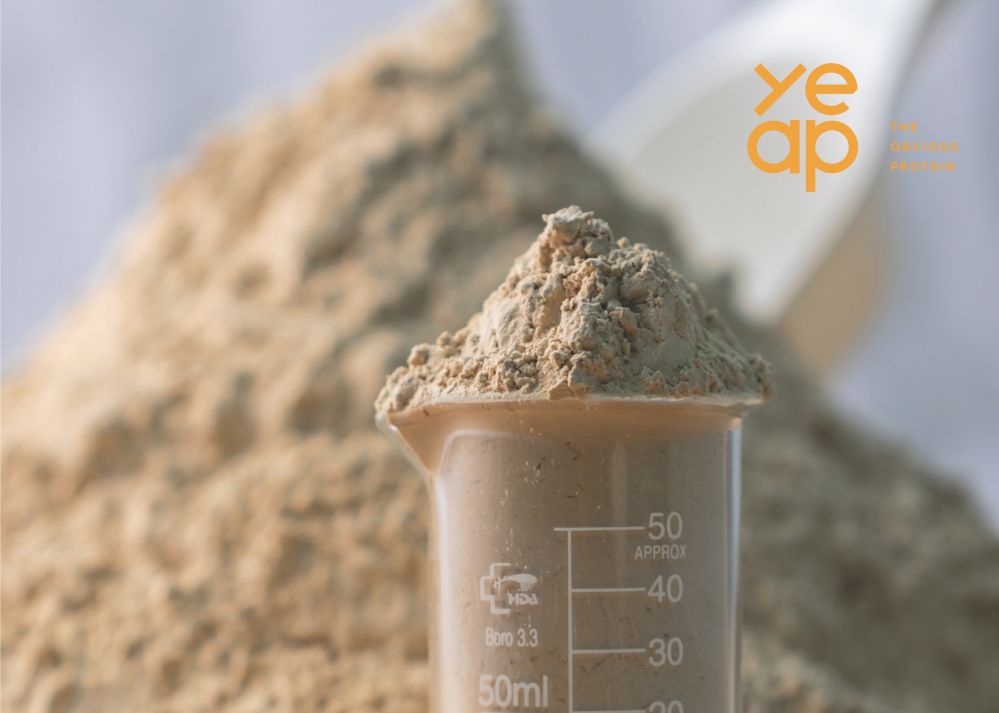[Disclosure: AgFunderNews’ parent company, AgFunder, is an investor in Yeap.]
- French fermentation giant Lesaffre has acquired a 10% stake in Yeap, an Israeli startup developing proteins from upcycled yeast.
- The investment will be overseen by Biospringer by Lesaffre, the world’s largest producer of food ingredients from yeast and other microorganisms, which will work with Yeap to bring “new groundbreaking, functional, alternative proteins to the market.”
Founded in 2020 by Jonathan Goshen (CEO), Didier Toubia and Dominik Grabinski, and backed by investors including The Kitchen FoodTech Hub by Strauss and AgFunder, Yeap makes protein from upcycled yeast, “the best nutritional protein that doesn’t require extensive agriculture land usage, is resilient to extreme climate events and has no production limits,” Goshen told AgFunderNews.
The protein—which has a neutral flavor and a protein digestibility (PDCAAS) score of 0.95, which is very close to animal protein—is made from upcycled yeast that otherwise would be thrown away or used as animal feed, said Goshen.
“We convert it into a functional concentrated protein [70%+ protein] using a patent-pending process involving extraction, concentration, and drying, and it’s listed on the ingredients list as ‘yeast protein.’”
According to Goshen: “We want to be the yeast down stream collector of the industry. Our relationship with Lesaffre started a while back, as they are one of the largest yeast producers, regarding several potential collaborations that will allow us to bring our functional protein to the market, but the first step is the investment.
“At the same time, we are collaborating with several large food companies that are in various stages of product development based on our functional protein.”
High inclusion rates in dairy alternatives with a creamy taste and texture
The protein, which will initially be targeted at the dairy alternatives market, has emulsifying properties and can also help formulators replace eggs and clean up labels by replacing starches and stabilizers in some instances, said Goshen. It also has potential applications in condiments, protein bars and meat analogs.
Grabinski said: “When you use soy or pea protein in alternative cheeses, you not only have issues with flavor, but with texture and functionality.
“Our protein is unique because you can get a far higher inclusion rate, up to seven or eight times, without negatively impacting the structure of the cheese. So that’s solving a big problem, as many of these plant-based cheeses have less than 1% protein.”
The regulatory pathway
Asked about the manufacturing set up, Goshen said: “Our process, while proprietary, unique and patentable, can be performed using mostly existing equipment. This gives us flexibility and agility to use existing co-manufacturers and decide, at the right point, to set up our own manufacturing, which will be located adjacent to our yeast source”
From a regulatory perspective, meanwhile, Yeap’s protein will not be considered as a novel food, which makes life easier, he said. “Now that we’ve got the investment, we will be able to commercialize our protein within months”






